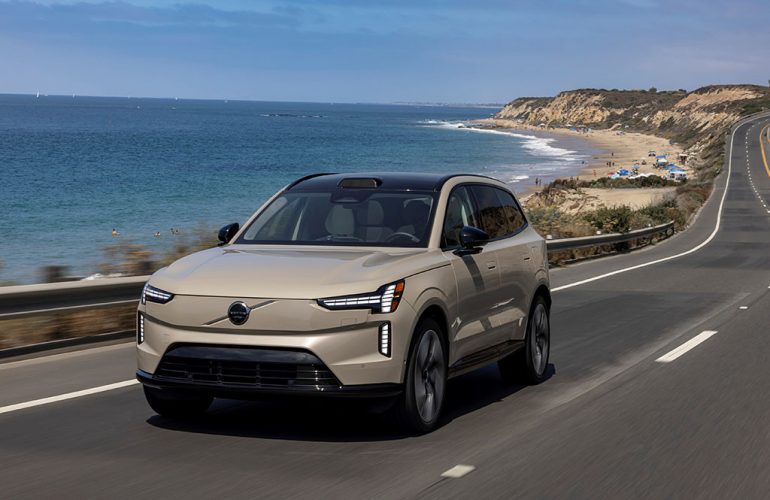
In a notable shift from its earlier ambitions, Swedish automaker Volvo Cars has revised its strategy on achieving an all-electric lineup by 2030. The company, known for its strong commitment to sustainability, announced that it will now continue to offer hybrid models alongside fully electric vehicles beyond the 2030 target.
Volvo’s decision reflects broader industry challenges, including the slow adoption of electric vehicles (EVs), limited availability of affordable models, and insufficient charging infrastructure. The company also faces the impending impact of European tariffs on EVs manufactured in China, adding further complexity to its electrification plans.
Volvo Cars has adjusted its target to aim for 90-100% of its sales to be fully electric or plug-in hybrid vehicles by 2030. This shift allows for up to 10% of sales to be mild hybrids, providing the flexibility to respond to market conditions and consumer demand. Previously, Volvo had committed to a more aggressive goal of exclusively selling fully electric vehicles by the end of the decade.
This pivot comes as a response to evolving market dynamics. While the initial industry focus was on rapidly phasing out hybrid models in favor of fully electric vehicles, consumer preferences have shown a growing demand for hybrids. These vehicles offer a compromise between the new technology of EVs and the reliability of traditional internal combustion engines, particularly for buyers concerned about range anxiety and the current limitations of charging infrastructure.
Volvo’s revised strategy underscores a significant trend across the automotive industry. As major automakers confront the reality of slower-than-expected EV adoption, many are reconsidering their timelines for phasing out internal combustion engines. For Volvo, this means balancing its strong belief in an electric future with the practical need to cater to markets that are not yet ready to fully embrace EVs.
By 2025, Volvo now expects electrified vehicles, including both full EVs and hybrids, to account for 50-60% of its global sales. This is a notable shift from its previous goal, which aimed for at least 50% of its sales to be fully electric by that year. The company’s CEO, Jim Rowan, emphasized that while the direction towards electrification remains unchanged, the path will be more gradual and market-dependent.
As Volvo adapts its strategy, it also calls for more robust and consistent government policies to support the transition to electric vehicles. The automaker highlights the need for stronger governmental action to ensure that the infrastructure, incentives, and regulations align with the industry’s push toward electrification.
Volvo’s decision to extend its timeline for going all-electric reflects a pragmatic approach to the complex challenges of transitioning to a fully electric future. As the company navigates these hurdles, its commitment to electrification remains strong, albeit with a more flexible and market-responsive strategy. This move allows Volvo to continue leading in the electrification space while ensuring it can meet the needs of diverse markets worldwide.

Mike Floyd is a finance executive by trade and a car enthusiast at heart. As a CFO with a keen eye for detail and strategy, Mike brings his analytical mindset to the automotive world, uncovering fresh insights and unique perspectives that go beyond the surface. His passion for cars—especially his favorite, the Porsche 911, fuels his contributions to Automotive Addicts, where he blends a love for performance and design with his professional precision. Whether he’s breaking down industry trends or spotlighting emerging innovations, Mike helps keep the site both sharp and forward-thinking.